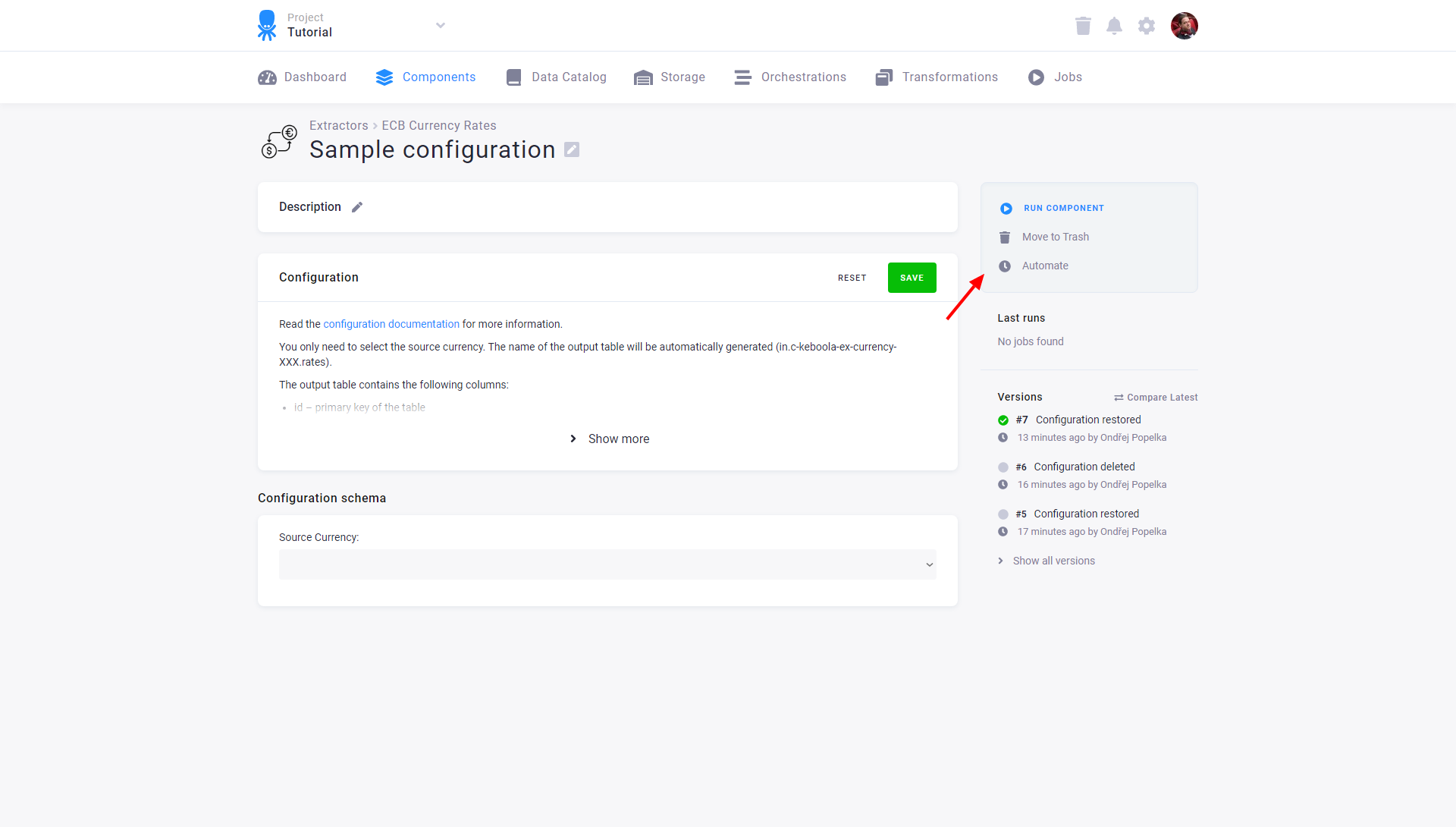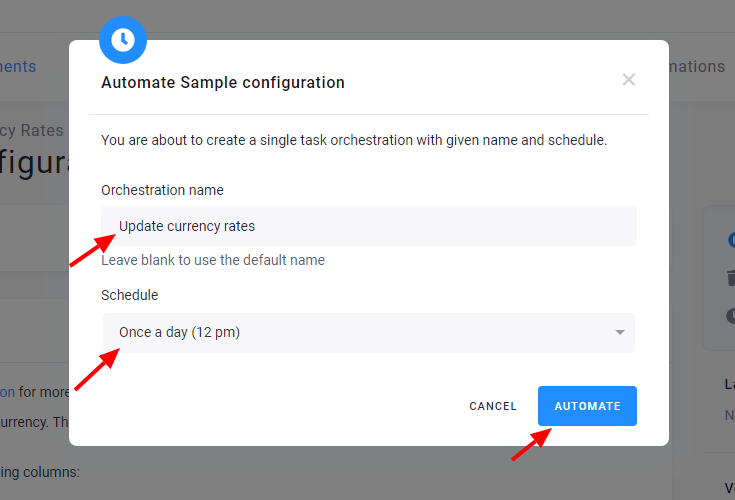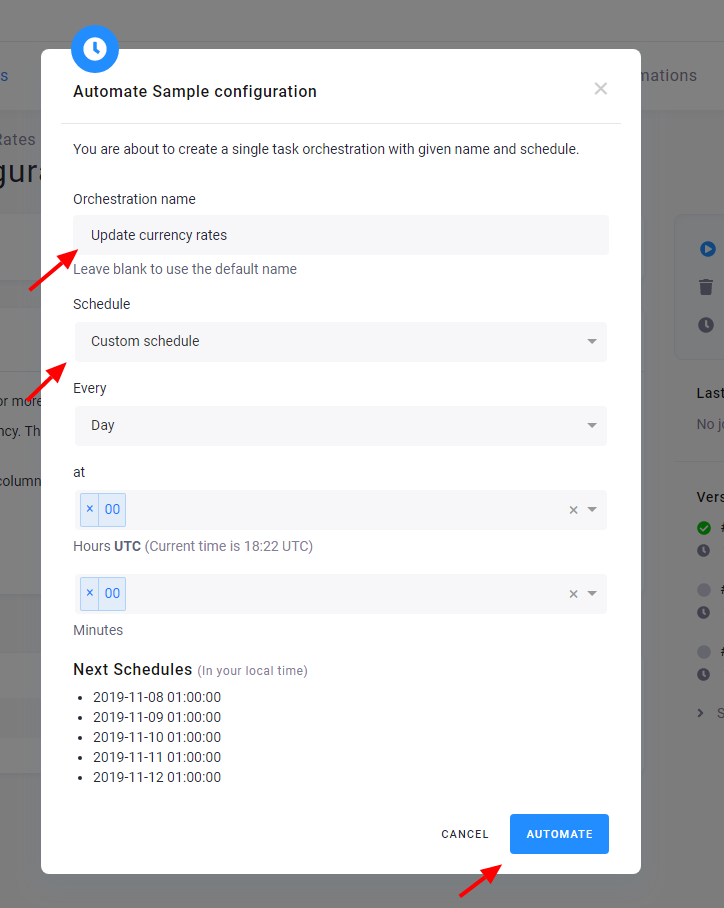- Home
- Keboola Overview
- Getting Started Tutorial
-
Components
-
Data Source Connectors
- Communication
- Databases
- ERP
-
Marketing/Sales
- Adform DSP Reports
- Babelforce
- BigCommerce
- ChartMogul
- Criteo
- Customer IO
- Facebook Ads
- GoodData Reports
- Google Ads
- Google Ad Manager
- Google Analytics (UA, GA4)
- Google Campaign Manager 360
- Google Display & Video 360
- Google My Business
- Linkedin Pages
- Mailchimp
- Market Vision
- Microsoft Advertising (Bing Ads)
- Pinterest Ads
- Pipedrive
- Salesforce
- Shoptet
- Sklik
- TikTok Ads
- Zoho
- Social
- Storage
-
Other
- Airtable
- AWS Cost Usage Reports
- Azure Cost Management
- Ceps
- Dark Sky (Weather)
- DynamoDB Streams
- ECB Currency Rates
- Generic Extractor
- Geocoding Augmentation
- GitHub
- Google Search Console
- HiBob
- Mapbox
- Papertrail
- Pingdom
- ServiceNow
- Stripe
- Telemetry Data
- Time Doctor 2
- Weather API
- What3words Augmentation
- YourPass
- Data Destination Connectors
- Applications
- Data Apps
- Development Branches
- IP Addresses
-
Data Source Connectors
-
Templates
- Advertising Platforms
- AI SMS Campaign
- Customer Relationship Management
- DataHub
- Data Quality
- eCommerce
- eCommerce KPI Dashboard
- Google Analytics
- Interactive Keboola Sheets
- Kai PromptLab
- Kai SQL Bot
- MailChimp
- Media Cashflow
- Project Management
- Repository
- Social Media Engagement
- Surveys
- UA and GA4 Comparison
- Data Catalog
- Storage
- Orchestrations
-
Transformations
- Mappings
- Workspace
- Variables & Shared Code
- dbt Transformation
- Python Transformations
- R Transformations
- Snowflake Transformations
- BigQuery Transformations
- Redshift Transformations
- Synapse Transformations
- Exasol Transformations
- Teradata Transformations
- Oracle Transformations
- Code Patterns
- Legacy Sandbox
- Legacy Julia Transformations
- Legacy OpenRefine Transformations
- Legacy Python Transformations
- Legacy R Transformations
- Legacy Redshift Transformations
- Legacy Snowflake Transformations
- Transformation Migration
- Management
- Home
- Orchestrations
Orchestrator
*Note: This page will be updated soon. *
Bringing systems for data loading, manipulation and writing together is what makes Keboola so powerful and easy to use. With source connectors, you can fetch data from data sources into Storage. With transformations and applications, you can modify the data. With destination connectors, you can send it to destination systems.
The Orchestrator component has two important features:
- Organizing the configured components into logical building blocks or full data pipelines.
- Scheduling automated and repeated execution of those blocks or pipelines.
The former feature of the Orchestrator allows you to define dependencies between different configured components. For example, it allows you to specify that a transformation must be run after an extraction which provides the source data for it. You can also specify that two extractions may run in parallel because they are independent of each other. This way it is possible to organize large and complex projects and ensure you always work with the latest data available.
The latter feature of the Orchestrator allows you to fully automate the entire data pipeline. That guaranties that the destination systems (e.g. Tableau Business Analytics) always contain the latest available data, without any user intervention. Every change to your entry data will automatically propagate up to your dashboard or visualisation project.
See the corresponding part of our tutorial to quickly set up an example Orchestration.
Single Task Orchestrations
In case you want to automate a single configuration, the quickest option is to use the Automate button at the configuration page:

Specify the orchestration name and schedule:

If any of the predefined scheduled options do not fit your needs, select Custom schedule to set up an individual schedule.

When done, click the Automate button to create a new Orchestration containing the configuration as its only task. The orchestration has no special properties, so you can further modify it as any other orchestration.
© 2024 Keboola
